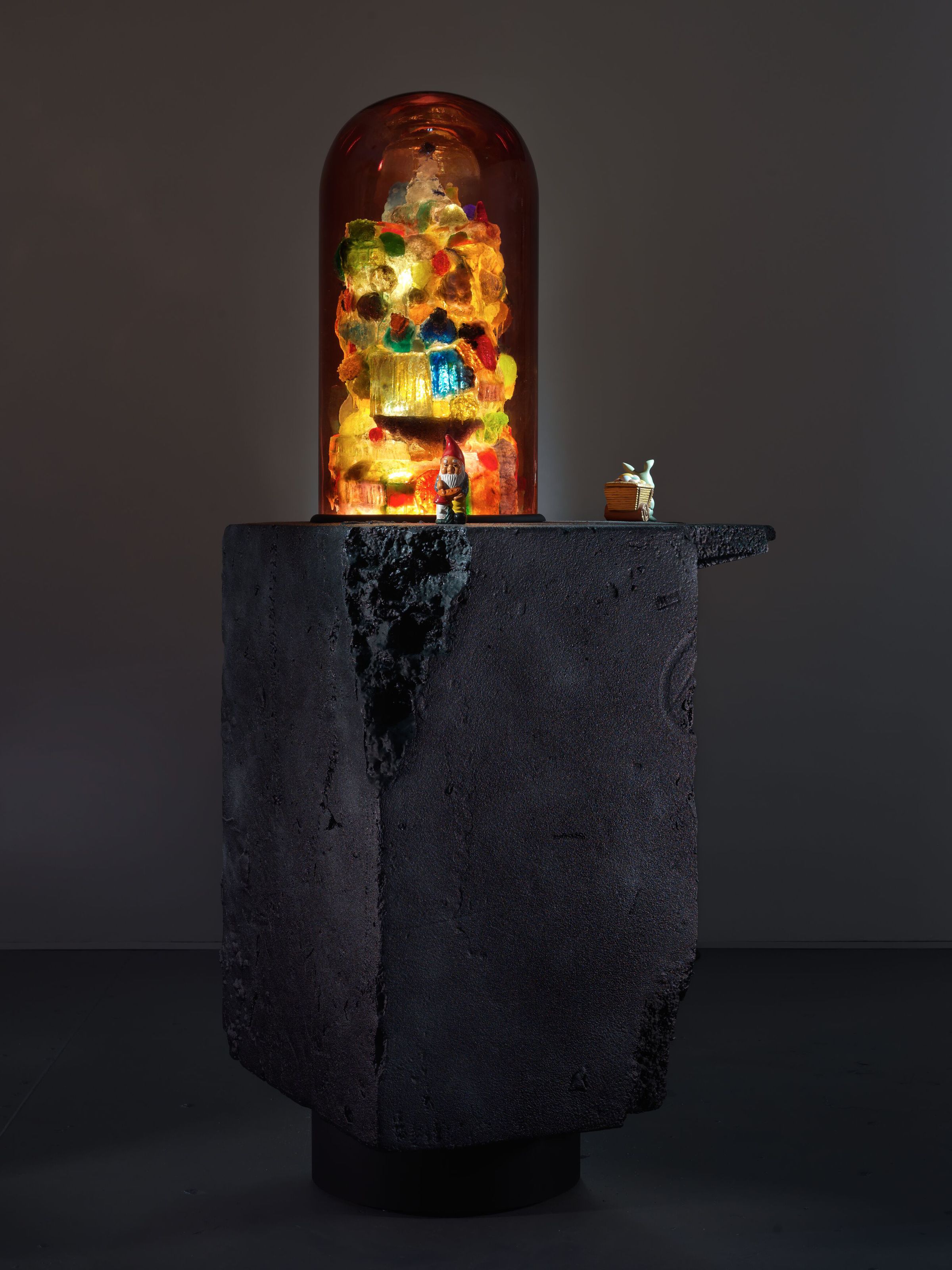Peder Lund

Mike Kelley
Download BiographyMike Kelley (b. 1954 in Detroit, MI, d. 2012 in Los Angeles, CA) is widely considered one of the most influential artists of our time. Originally from a suburb outside of Detroit, Kelley attended the University of Michigan, Ann Arbor, before moving to Southern California in 1976 to study at the California Institute of the Arts from which he received an MFA in 1978. The city of Los Angeles became his adopted home and the site of his prolific art practice. In much of his work, Kelley drew from a wide spectrum of high and low culture and was known to scour flea markets for America’s cast-offs and leftovers. Mining the banal objects of everyday life, Kelley elevated these materials to question and dismantle Western conceptions of contemporary art and culture.
Starting out in the late 1970s, Kelley became known for performance and installation based works; he came to prominence in the 1980s with a series of sculptures composed of common craft materials and stuffed animals. His work later widened in scope and physical scale, exemplified by Educational Complex(1995), the Kandors series (1999 – 2011), Extracurricular Activity Projective Reconstruction series (2000 – 2011), and the posthumously completed public work Mobile Homestead (2006 – 2013). These projects invoked a vast range of media and forms, illustrating the artist’s versatility and underscored a number of Kelley’s recurrent themes, such as repressed memory, sexuality, adolescence, class, and Americana, which were central to his artistic praxis. Throughout his career, Kelley also worked on curatorial projects, collaborated with many artists and musicians, and produced a formidable body of critical and creative writing.
Mike Kelley’s work has been the subject of numerous exhibitions throughout the United States and Europe, including at the Museum of Contemporary Art, Los Angeles, CA (2014); MoMA PS1, New York, NY (2013); Centre Pompidou, Paris, France (2013); The Stedelijk Museum, Amsterdam, Netherlands (2012); and Musée du Louvre, Paris, France (2006). In 2022-2023, Peder Lund presented the exhibition Kandors, which marked Kelleys first solo exhibition in Norway. Kelley’s work belongs in the collections of the Art Institute of Chicago, Chicago, IL, Centre Pompidou, Paris, France, the Metropolitan Museum of Art, New York, NY, the Museum of Modern Art, New York, NY, and the Whitney Museum of American Art, New York, NY, among others. He received the Guggenheim Fellowship for Creative Arts’ award for Fine Arts in 2003.